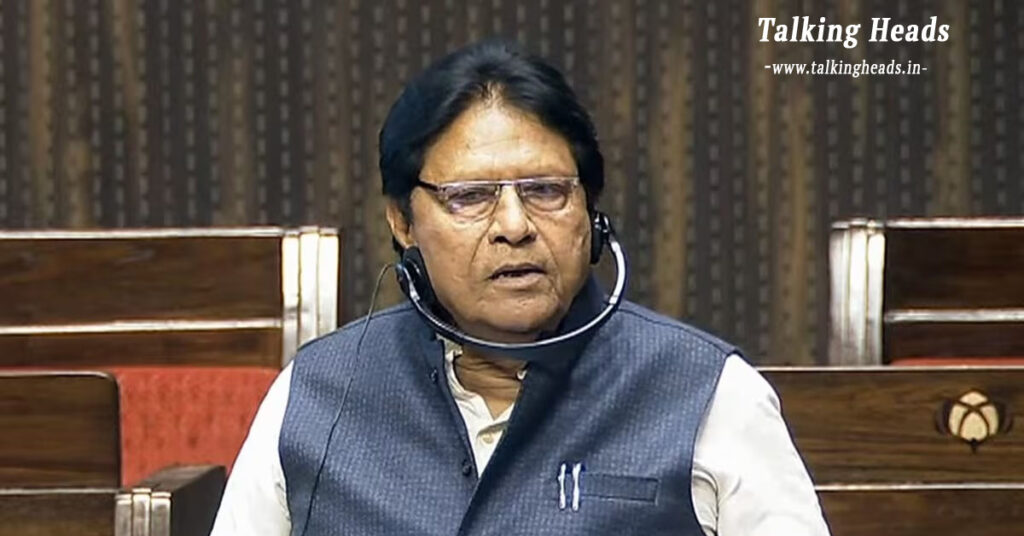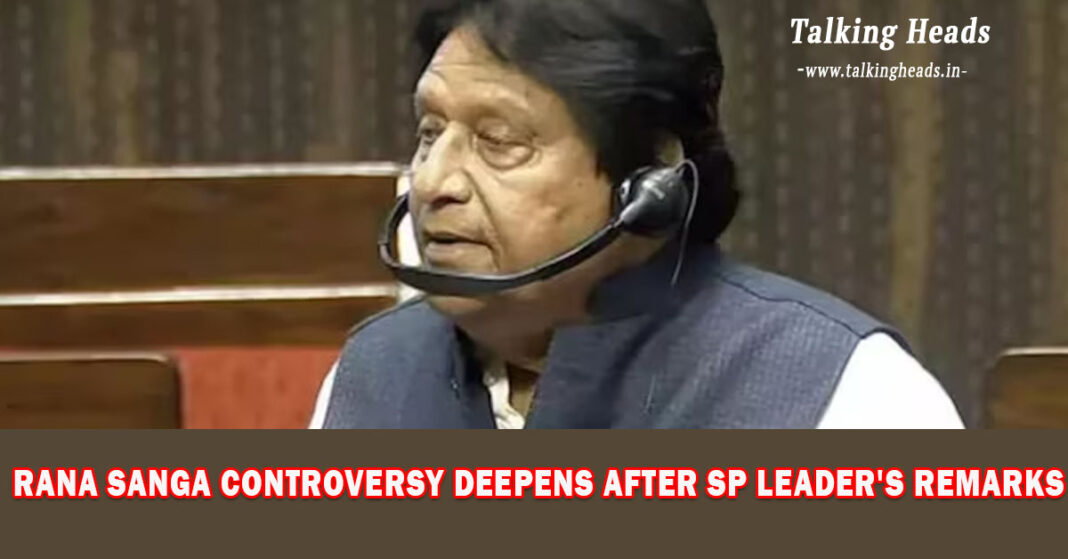The political controversy surrounding Rana Sanga continues to escalate in Uttar Pradesh, following controversial remarks made by Samajwadi Party (SP) Rajya Sabha MP Ramji Lal Suman. A large group of Karni Sena workers gathered in front of his house, attempting to force their way inside, resulting in clashes with the police. Several police officers were injured in the skirmish, intensifying the situation.
Karni Sena leader Mahipal Makrana, after the protests, stated, “This is just a trailer. We should have given a strong response to such individuals much earlier. If Ramji Lal Suman’s membership is not revoked, a massive nationwide protest will unfold.”
What Led to the Controversy Surrounding Ramji Lal Suman’s Statement?
Suman mentioned that Rana Sanga invited the Mughal emperor Babur to India to defeat Ibrahim Lodi. This remark, which implied that Rana Sanga was a betrayer, sparked outrage among many, particularly Karni Sena supporters.
Suman’s statement not only fuelled protests in Uttar Pradesh but also saw demonstrations in Rajasthan and Madhya Pradesh. His comments quickly became a flashpoint, sparking an outpouring of anger and calls for action against the MP.
Ramji Lal Suman’s Full Statement and Défense
Suman’s comments on March 21 were a part of a larger discussion regarding India’s historical figures. So, you are the descendants of the traitor Rana Sanga.” He went on to argue that while Babur faced criticism, Rana Sanga was rarely held accountable for his actions.
However, following the backlash, Ramji Lal Suman defended himself in an interview with news agency ANI. He clarified, “My intention was never to hurt anyone’s religious sentiments. My statement wasn’t aimed at any community or religion. I am not apologizing for my remarks, as I believe people need to get used to hearing the truth.” Despite calls for an apology, Suman remained firm in his stance and ruled out offering an apology in this lifetime.
Who Is Ramji Lal Suman?

Suman has a long political career, having first entered Parliament in 1977 as a member of the Janata Party, representing the Firozabad constituency.
Later, he was elected to the Lok Sabha in 1989 and 1991 from the same constituency under the banner of the Janata Dal. After joining the Samajwadi Party, Suman continued his political career, contesting and winning elections multiple times from Firozabad. He also ran unsuccessfully for the Hathras seat in 2014 and 2019.
Notably, Suman served as a Cabinet Minister during the Chandra Shekhar government (1990-1991) and was actively involved in several key issues.
Who Was Rana Sanga?
Rana Sanga, also known as Sangram Singh, was a prominent Rajput ruler of Mewar in the 16th century. Born in 1482 to King Rai Mal and Queen Ratan Kanwar, Sanga faced a turbulent early life, engaging in battles with his brothers to claim the throne.
His reign saw several successful military campaigns, but his forces ultimately succumbed to Babur’s invasion. Sanga’s death on January 30, 1528, marked the end of an era in Mewar’s history.
The Larger Political Context:
The controversy surrounding Ramji Lal Suman’s remarks on Rana Sanga has taken on a larger political dimension. The clash of historical narratives, especially related to figures like Sanga and Babur, often sparks intense debate over identity and historical memory in India. This incident is not just a clash over one individual’s legacy but also a reflection of the ongoing ideological battles within the political landscape of Uttar Pradesh and the wider nation.
As the situation unfolds, the tension between the Samajwadi Party and various Rajput groups, especially Karni Sena, is likely to deepen. The outcome of this controversy may have long-term implications for the region’s political climate, with increasing calls for accountability and action against those making controversial statements about historical figures.
The Rana Sanga controversy is a vivid example of how historical discussions intersect with contemporary politics in India. Ramji Lal Suman’s comments have ignited protests and rekindled debates over India’s complex past, particularly around the legacies of figures like Babur and Rana Sanga. As the situation continues to unfold, it remains to be seen whether this controversy will spark broader political ramifications or fade away as just another incident in the tumultuous landscape of Indian politics.










